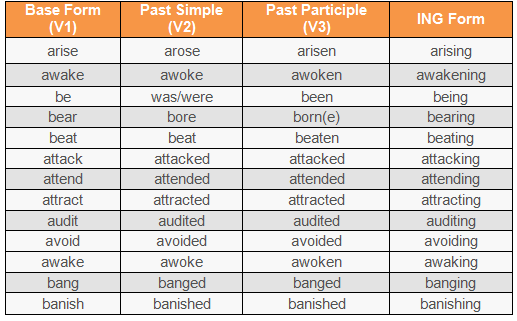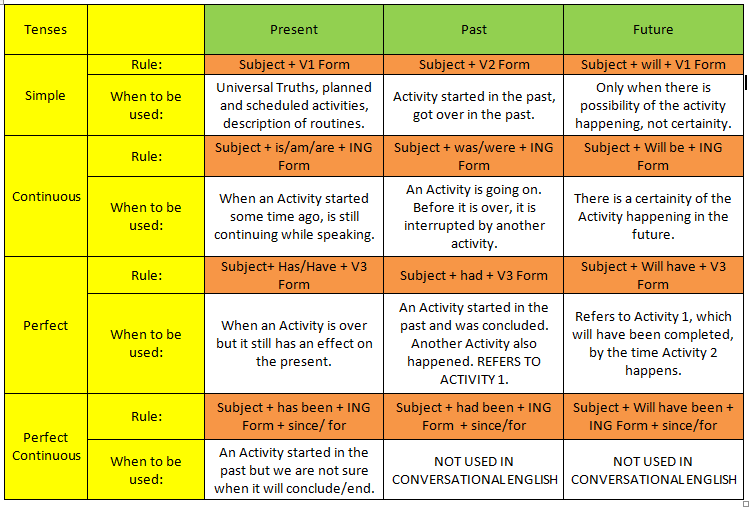Tenses are a concept that has made a lot of people very tense since they started learning English! (Please excuse the pun!)
Tense review - Cambridge
On a more serious note though, if we are able to understand these concepts and how they work instead of mugging up these rules and trying to memorize them, our problems are SOLVED!
Tenses give us the timeline of the action, basis the form of the verb used.
Verbs come in three tenses: past, present, and future.
The past is used to describe things that have already happened (e.g., earlier in the day, yesterday, last week, three years ago). The present tense is used to describe things that are happening right now or things that are continuous. The future tense describes things that have yet to happen (e.g., later, tomorrow, next week, next year, three years from now).
Before we jump into the how and why let us first understand what Verb Forms are and how to tabulate them.
Verb forms and tenses are very important and should always be used correctly for 2 simple reasons!
- They provide the correct information.
- To be understood properly at all times.
Tenses are very easy to understand when we know when to use them. You do not need to memorize the forms or the rules for different tenses if you can understand the different scenarios that they are used in.
There you go — now that you know the different types and forms of verb tenses, you can start practicing, finding random people to speak to and start by keeping a journal about your daily activities!





